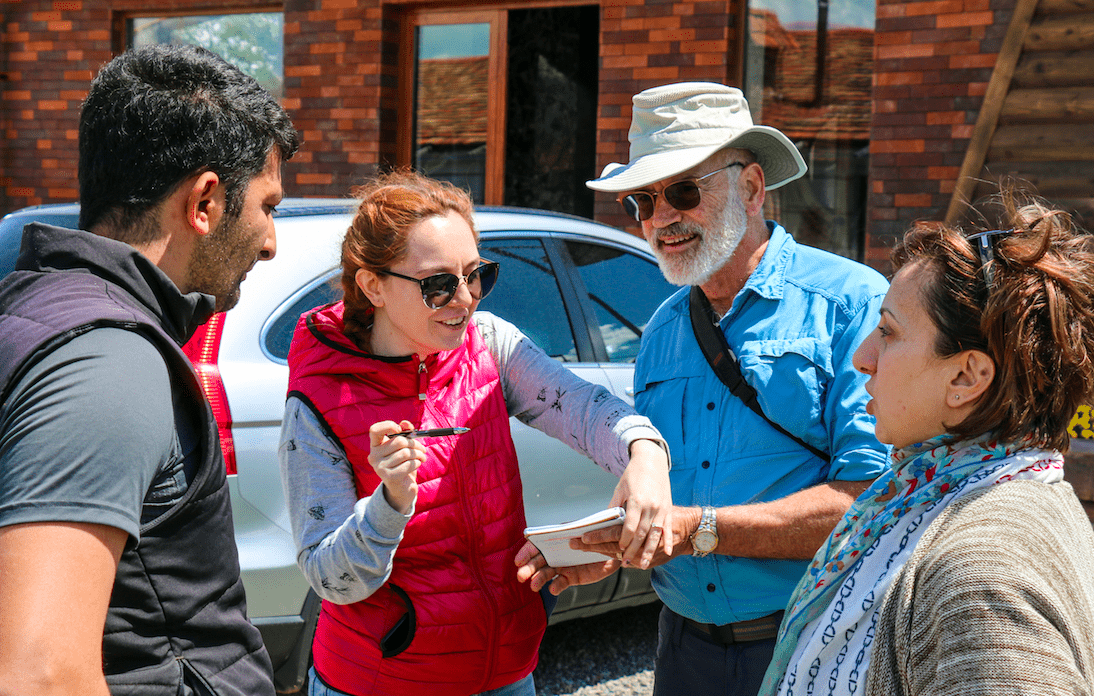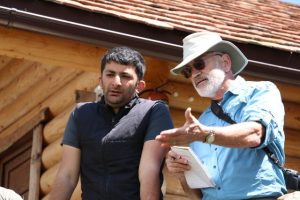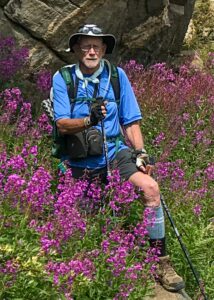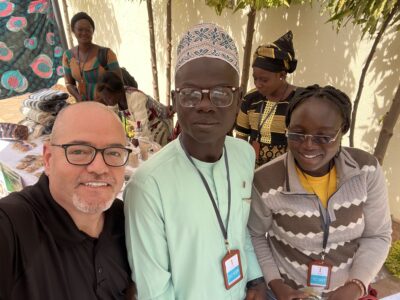
What is tourism going to look like in the future? That is the question on many people’s minds as vaccine distribution offers a glimmer of hope for the eventual easing of travel restrictions. Until then, rural tourism has the potential to offer a safer alternative to visiting overcrowded cities. With fewer people traveling internationally, agritourism, which refers to visiting working farms or ranches, also has new appeal among urbanites looking to get away within their own country borders.
This Earth Day, Thursday, April 22, ACDI/VOCA also recognizes how agritourism’s potential to have positive effects on the environment, when done sustainably and without damage to the local ecosystem. Through agritourism, farmers earn additional income that supports their sustainable practices, while educating visitors at the same time.
Outdoor Adventure in Georgia

Volunteers like David Visher, of California, have been supporting agritourism for years. Visher has completed more than a dozen assignments through the Farmer-to-Farmer Program, funded by USAID, including assignments with ACDI/VOCA in Georgia and Armenia.
Often a single entrepreneur is the spark that ignites a community to get involved in developing agritourism in their area. In Georgia, Visher worked with one such entrepreneur in a small village offering camping, hiking, guest lodging, and fishing in a stream that is home to a unique species of trout. The community worked together toward their vision as a rural destination. Visher saw first-hand the appeal of exploring the outdoors and enjoying authentic Georgian meals made from products grown within a few-mile radius.
Eco-Lodging in Armenia
In Armenia, an eco-resort owned by a local family needed to gain the support of the community, NGOs, and local government to thrive. Visher supported their efforts to develop a solid business plan. Because the resort only served organic foods, all of it had to be sourced locally. This meant encouraging the development of greenhouses for growing tomatoes and mushrooms. The family also encouraged development in other areas to draw in visitors, including horseback riding, wild harvesting tours, and visits to the Dendropark arboretum. The eco-resort aims to be an anchor enterprise that supports an ecosystem of businesses in the community.
Remote Volunteering in the Kyrgyz Republic

Other volunteers like Alan Robinson, of Colorado, have completed their Farmer-to-Farmer assignments with ACDI/VOCA remotely via Zoom during the pandemic. Robinson worked with a local NGO in the Kyrgyz Republic to come up with a best practice manual for agritourism groups to improve the quality and safety of their services. Chapters covered how to share the economic benefits with the wider communities and how to sustainably manage adventure activities, such as backpacking and skiing. Robinson was able to help groups improve their services, which will be crucial as the country aims to counteract a drop in foreign tourism during the pandemic by diversifying and attracting more domestic tourism.
The Benefits of Combining Agriculture and Tourism
The Farmer-to-Farmer Program is uniquely suited to serving communities with the potential for agritourism. Volunteers bring their career expertise to different ventures in need of support. From wineries and vineyards to eco-resorts, these ventures can have environmental benefits when their operations are small-scale, low-impact, and sustainable. With the support of volunteers, farming households learn new ways of increasing their incomes. Because governments, associations, and businesses must all collaborate to ensure the infrastructure is in place to support agritourism, entire communities can also benefit on a larger scale.
Watch a webinar featuring volunteer David Visher and Peggy Leff, agritourism coordinator for the University of California Sustainable Agriculture Research & Education Program (UC SAREP), a statewide program within UC Agriculture and Natural Resources.
Learn more about our Volunteer Programs.






